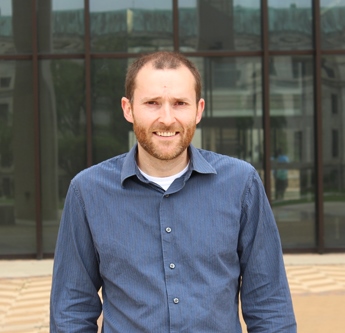Meet the 2016 Research Grants Winners: Tim Duguid
In this mini interview series you will hear directly from the winners of the Europeana Research Grants. Learn more about who they are, what they do, and find out how important cultural heritage material is to their work.
Introducing Dr. Timothy Duguid, who is working on a research portal entitled MuSO (Music Scholarship Online).
Tell us about yourself...
 I am a lecturer in digital humanities and information studies for the Humanities Advanced Technology and Information Institute (HATII) at the University of Glasgow.
I am a lecturer in digital humanities and information studies for the Humanities Advanced Technology and Information Institute (HATII) at the University of Glasgow.
My current research interests lie in the intersection between digital humanities and historical musicology, focusing on issues surrounding the curation of digital scholarship in music, including access, metadata generation and peer review. I hold a Ph.D. in music history from the University of Edinburgh in early modern English and Scottish liturgical music, having published a monograph based on this research in 2014: Metrical Psalmody in Print and Practice: English ‘Singing Psalms’ and Scottish ‘Psalm Buiks,’ c.1547-1640.
What made you apply for the Europeana Research Grant?
I was aware of the Europeana Collections before I applied, having explored the contents of the Music Collection on numerous occasions. I applied for the grant because Europeana’s Music Collection is quite varied, including physical objects, musical scores, sound recordings, and other related items. Moreover, these items are aggregated alongside varying content from other disciplines. This is precisely what I envision for my research portal entitled MuSO (Music Scholarship Online). It will aggregate digital archives and collections, digitised printed scholarship, and born-digital scholarly resources in music alongside other humanities-related digital artefacts presently aggregated by the Advanced Research Consortium.
How essential is access to cultural heritage data for your research?
Access to cultural heritage data is critical for MuSO. In fact, the community surrounding this project is all dedicated to promoting greater visibility and access to music heritage artefacts and data. It is our goal that MuSO will allow scholars to discover high quality digital scholarship alongside primary musical resources and more traditionally disseminated forms of scholarship such as digitised monographs and electronic journal articles.
The music community is reliant upon a number of digital resources to conduct scholarship, and this list continues to grow. Although not an exhaustive list, some of the relevant collections include the Digital Public Library of America (DPLA), HathiTrust, International Music Score Library Project (IMSLP), Library of Congress Music Treasures Consortium, Répertoire Internationale de Littérature Musicale (RILM), and Répertoire Internationale des Sources Musicales (RISM). These resources have also been valuable in identifying what data is relevant for the discovery of musical resources.
